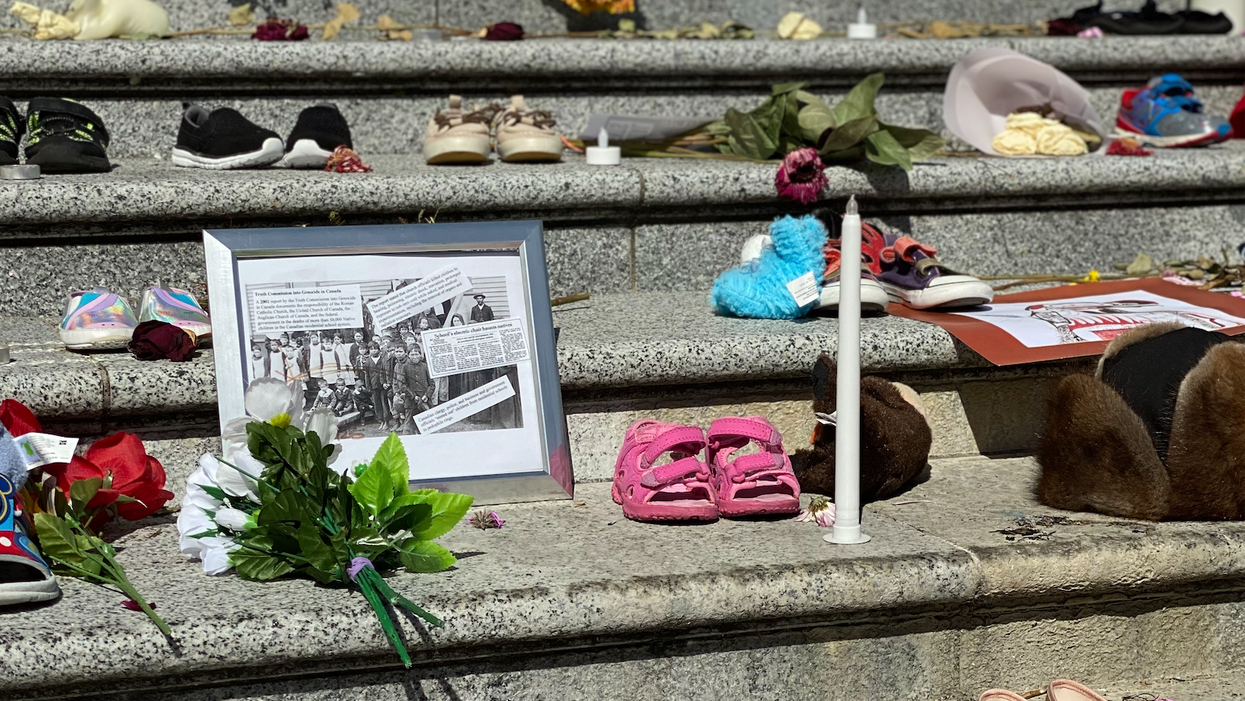Indigenous Chief Calls Discovery Of 751 Unmarked Graves A ‘Crime Against Humanity'
"We will find more bodies and we will not stop until we find all of our children," said Bobby Cameron in a heartbreaking statement.
On Thursday, June 24, a press conference was held following the discovery of hundreds of unmarked graves at the site of the former Marieval Indian Residential School in Saskatchewan.
Cowessess First Nation Chief Cadmus Delorme said 751 graves have been found at the site. According to the Federation of Sovereign Indigenous Nations (FSIN), this is the largest mass grave discovered in Canada to date.
FSIN Chief Bobby Cameron made a statement as well. He said, "this was a crime against humanity, an assault on First Nations people."
"There are many sites that we're going to be doing this similar work and we will find more," Cameron continued. "We are seeing the results of the genocide that Canada committed here, genocide on our treaty land. We will find more bodies and we will not stop until we find all of our children."
"The world is watching Canada"
Cameron added, "the world is watching Canada as we unearth the findings of genocide. We had concentrations camps, we had them here in Canada, in Saskatchewan. They were called Indian Residential Schools. Canada will be known as the nation who tried to exterminate First Nations."
Residential schools were facilities created by the Canadian government and run by churches from the 1830s until 1996. Indigenous children were taken from their communities and forced to live at these schools. These boarding schools were meant to assimilate Indigenous children into settler society, and students were regularly mistreated and abused.
Cameron went on to say that these stories will continue to surface and that Canada will need to work with Indigenous communities in the spirit of reconciliation. He said Prime Minister Justin Trudeau and Saskatchewan Premier Scott Moe have committed to doing this.
"Now we have evidence. Evidence of what the survivors of the Indian Residential Schools have been saying all along for decades that they were treated without humanity, they were tortured, they were abused and they seen their classmates die. They even had to dig graves for their own fellow students."
The FSIN Cheif said, "we try to put ourselves in the eyes and the bodies of these children who are now being found in the ground, who have been waiting for decades to have a proper burial and to be honoured properly amongst their own protocols, traditions and customs."
These events follow a mass grave discovery in Kamloops, B.C. Searches of this nature will continue across Canada, Cameron said in his statement.
- Kamloops Residential School: Singh Is Calling For An Emergency ... ›
- Residential Schools Canada: Feds Are Being Asked To Investigate ... ›
- Saskatchewan Residential Schools: Jagmeet Singh Called Trudeau Out For His Response - Narcity ›
- Saskatchewan Residential Schools: Jagmeet Singh Called Trudeau Out For His Response - Narcity ›
- The US Found 500 Indigenous Graves At Boarding Schools & It Looks Like Canada All Over Again - Narcity ›
